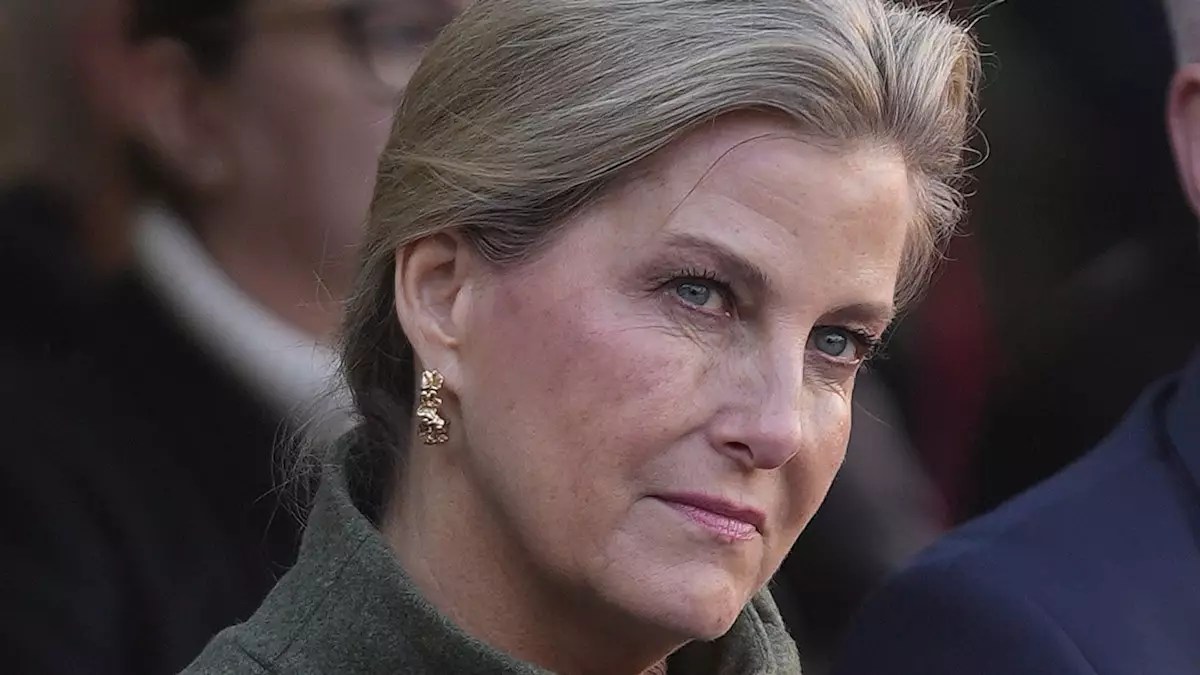The Duchess of Edinburgh, Sophie, has become renowned for her heartfelt displays of empathy, exemplified by a poignant moment with Yazidi genocide survivor Awaz Abdi. During a visit to “The Women Who Beat Isis” photography exhibition at the Foreign Office in London, Sophie showcased a tender gesture of support by offering Abdi a comforting hug. This interaction, which highlighted the intersection of royalty and humanitarianism, drew attention to both the Duchess’s character and the ongoing plight faced by victims of conflict.
At just ten years old, Abdi endured harrowing experiences at the hands of the so-called Islamic State (IS) in Iraq, where she was captured and enslaved. The emotional weight of her story resonated deeply with Sophie as she listened, illustrating the stark reality that those who survive such trauma carry scars that extend far beyond the immediate incidents. Their meeting highlighted not only individual struggles but also the broader message of solidarity in the face of adversity.
As the Duchess listened to Abdi recount her story of separation from her family, the severity of the situation became palpable. Abdi, along with some of her siblings, managed to escape to Kurdistan before reuniting in Germany, yet the psychological toll of their experiences is an ongoing battle. Sophie’s engagement with Abdi underscores the responsibility that public figures bear when they highlight such narratives. The Duchess remarked on the enduring aftermath of violence, calling attention to the devastating impact that shattered families and communities experience after acts of brutality.
Sophie’s statement, “This is singularly the most effective weapon that the world has, and we don’t do enough to deal with it,” articulates a critical view of societal neglect toward ongoing violence against vulnerable populations. By acknowledging that preventing violence is a shared responsibility, she invites reflection on how collective action—or the lack thereof—contributes to cycles of suffering.
Sophie’s commitment to addressing gender-based violence aligns with her role as a supporter of key initiatives such as the UN’s Women, Peace and Security Agenda and the UK’s Preventing Sexual Violence in Conflict Initiative. Her dedication to these causes reflects a broader commitment within the royal family to champion issues that impact marginalized women and survivors of violence.
By participating in events like the photography exhibition during the 16 Days of Activism against Gender-Based Violence, Sophie brings visibility to critical social issues often overlooked in mainstream discourse. The international campaign challenges the pervasive violence against women and girls, creating a platform for survivors to share their experiences and find support. Sophie’s involvement adds an essential layer of recognition and legitimacy to these narratives.
The Duchess’s actions have not gone unnoticed. Social media followers have praised her for embodying compassion and highlighting significant social issues. Comments such as, “She is the epitome of care in the Royal Family” reflect public admiration for her approachability and genuine concern for others. This heartfelt reception indicates that Sophie is fulfilling not just a royal role, but also a humanitarian one that resonates deeply with the community.
Moreover, her interactions serve to inspire a broader audience to engage with issues of social justice, reinforcing the idea that empathy can drive action. As she continues to be a beacon for those suffering from the consequences of gender-based violence and conflict, her influence should not be underestimated—she represents a vital link between the royal family and the often-ignored realities of individuals affected by systemic abuse.
In an era where empathy can sometimes feel scarce, the Duchess of Edinburgh stands out as a compassionate leader committed to affecting change. Her poignant interactions with survivors like Awaz Abdi not only foster personal connections but also serve to articulate a broader narrative of resilience amid trauma. Through her royal duties, Sophie emphasizes the importance of creating a supportive environment for victims and inspiring advocacy against violence. Her legacy is one of hope, affirming that genuine kindness can indeed be a powerful catalyst for change in the world.







Leave a Reply